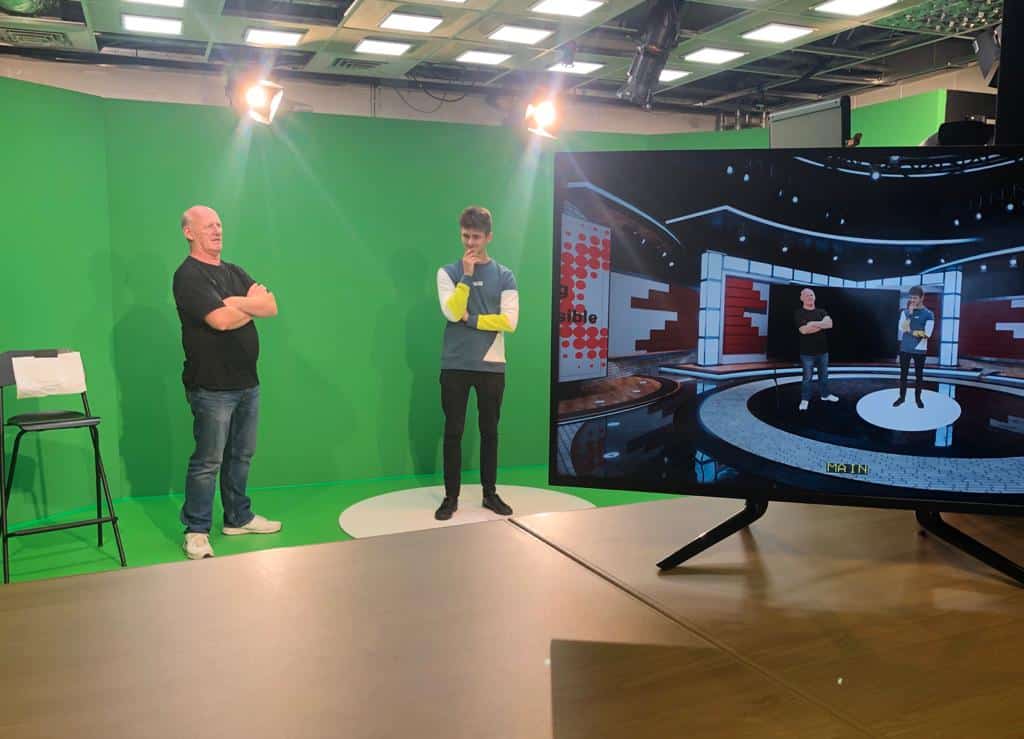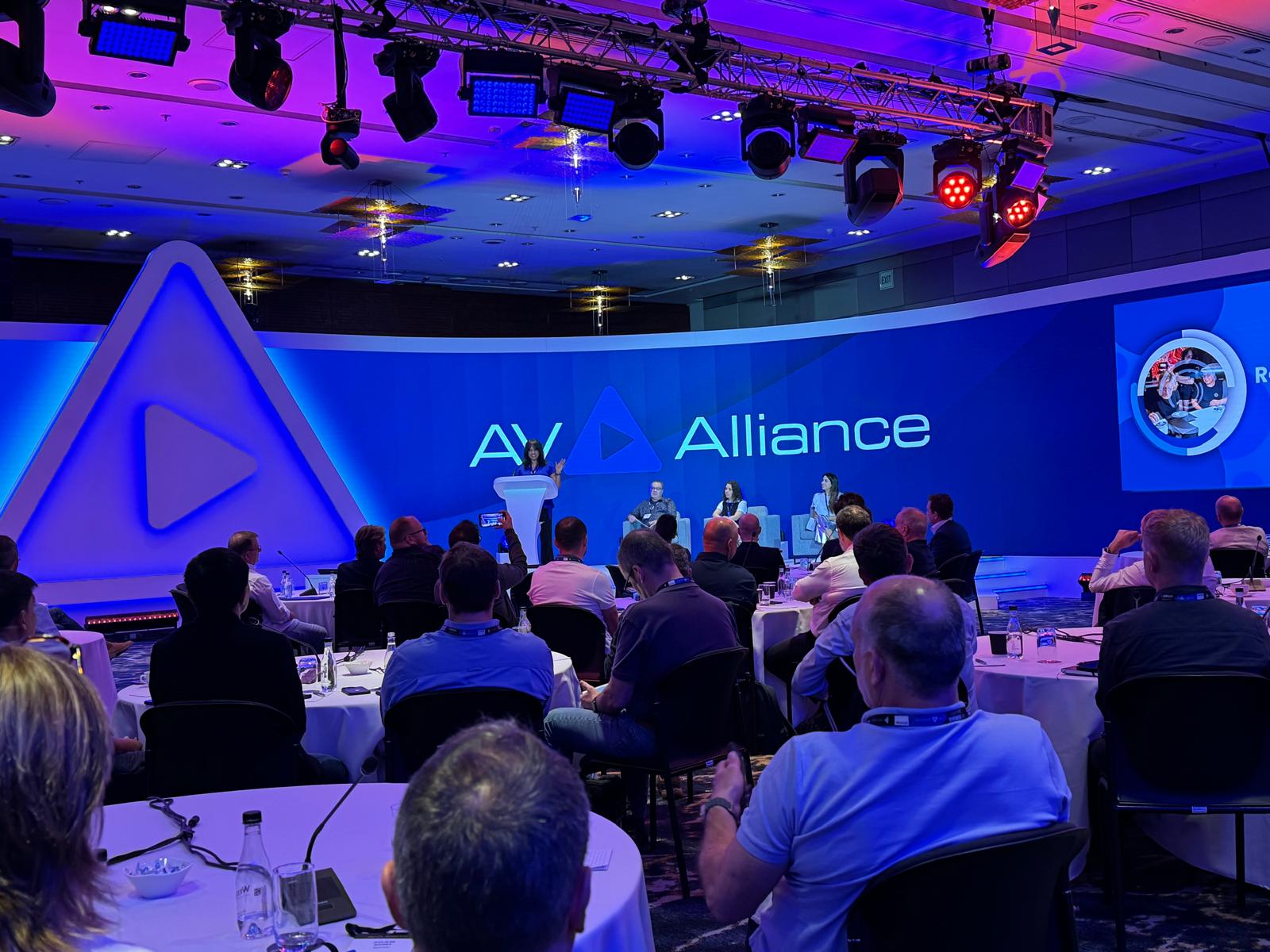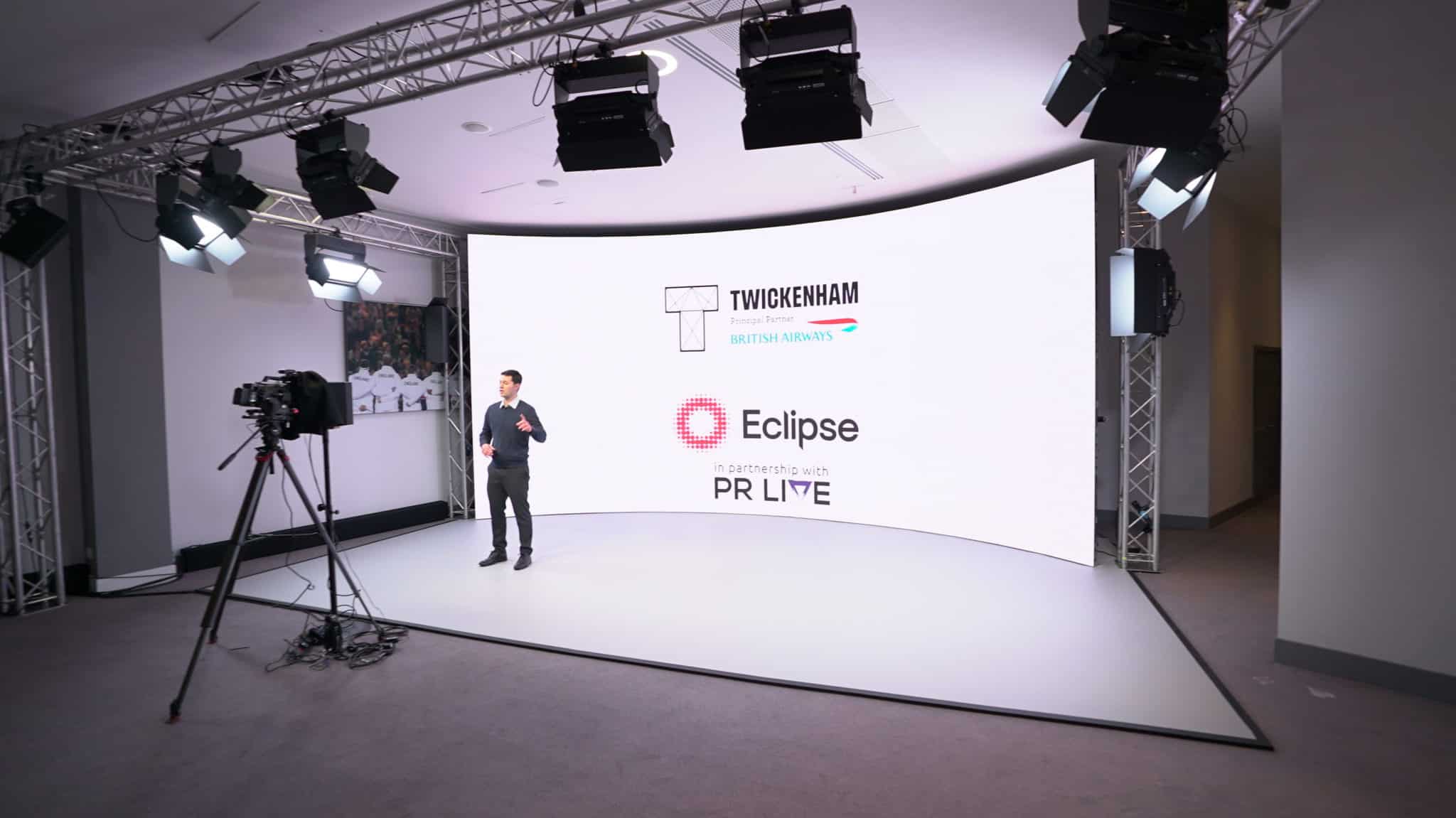10 Top Tips For Planning Your Next Virtual Event
The use of virtual events has risen dramatically in recent months, and we are seeing various modern ways to make a successful, inspiring and audience-centred virtual events. The challenges Covid-19 has brought to the events industry has made virtual and hybrid events an essential part of business, enabling the industry to continue operating at this uncertain time.
As an digital event planner, there are important questions that arise from this new way of working. How do you plan an entirely virtual event with relevant content? How do you make a virtual event easier to navigate? How do you make sure a virtual event is engaging and interesting? What makes a virtual event successful?
Here at Eclipse, we have created a list of top tips to help you plan a successful virtual event, whether it is a live event, online event or a hybrid event.
1. Understand your audience

As an event organiser, having a strong awareness of your audience’s needs and expectations is key when planning any event. We suggest you ‘pitch by not pitching’, meaning that you explain your goal without making the event an intense sales pitch. This will secure a human connection for the audience who may be isolated in their homes. It is crucial to remember that the biggest difference between a live event and a virtual event is that the audience can simply log out of the event at any time, so you need to provide reasons for the attendees to stay engaged and participate throughout the course of the event.
Questions to ask yourself before event planning include:
- Is your audience likely to participate in a virtual event?
- How strong is their technical knowledge, including use of social media and the internet?
- Which types of offers might they respond positively to, e.g. raffles or discount codes?
- How long will the event need to be to portray the message while keeping the attendees engrossed?
Above all make sure your virtual event is relevant to your target audience!
2. Understand your event goals

Before planning your entire event answer the following questions:
- Who will be attending the virtual event?
- What difficulties or challenges might they face when accessing and participating in the online event?
- What are their goals?
- How will you be collecting data and feedback from the event?
- What is the overall expectation of the event?
Taking into consideration who your attendees are, what they are having problems with and what they want to achieve from the virtual event will ensure a successful session. You know what you want to achieve by hosting this virtual event and you are using those goals to convey this message to your audience.
3. Choose the right platform

Deciding on which platform to use for your virtual event is all part of event planning and it can seem like a minefield of questions, confusing information and rival platforms who all seem to be offering the same services. Don’t panic – the right platform is only a little research away.
There are a few questions you should ask yourself before you make the choice of which platform would be best for your event.
- Is the platform free to use? If not, what costs are associated with it?
- How many people would be able to attend through this platform?
- Does the platform have all the features that you require?
- Does the platform offer support throughout the event in case things do not go to plan?
You will also want to consider whether your event is going to be live or pre-recorded as this will have an impact on which platform will work best for your event. When it comes to convenience, preparation and minimizing the risk of any technical issues, pre-recorded events are a practical option.
4. Choose your format

This is one of the most important decisions you will make when planning your virtual event. The format you choose will be dependent on your content and target audience. Hosting virtual events gives organisers plenty of freedom and variety, with options ranging from webinars, conferences or a virtual tour to name a few. It is essential to choose the right format to make a virtual event a success by ensuring optimal engagement and attendance from the audience.
A helpful tip to remember is that virtual events need a host just like any other event. There are a few options out there when choosing the right host for your event. You could hire a professional speaker or use a member of your own team and remember that you may need more than one host depending on the format of your event.
Questions to consider:
- Does the speaker have a loud and clear voice?
- Is the host comfortable in front of a camera?
- Will the host be able to ‘think on their feet’ and answer questions or respond to any unexpected events?
- Is the host friendly and likeable?
- Does the host come across as professional and well informed on the topic of the virtual event?
5.Plan your content

In order to plan content for your online event, you are likely to have already chosen your platform and format based on the goals of your event and target audience. Useful tips to remember when planning your content are to coordinate your messages around one interesting theme. You will want to repeat this through all forms of communication, including emails, blogs and social media. The best themes are well thought out, easy to understand and captivating. It is also a good idea to have a well-planned script to keep the whole virtual event organised and able to run smoothly. To support the script we suggest you make an interesting and appealing PowerPoint presentation, with slides that are clearly illustrating the point of your virtual event.
Here at Eclipse, we suggest that you use the same colours, logos and any other graphics that are on your website and social media platforms during your virtual event. This will help to promote your brand and make the whole event coherent and clear for the audience.
Questions to consider:
- Will we be using any photos, videos, animations etc?
- Will there be a Q & A session?
- Which form of technology will the audience use to access the event?
- Top tip: It is possible that a large number of your attendees will access the virtual event via their mobile phones, so it is a good idea to consider this when planning content.
6. Choosing a time, date and location

Virtual events are fortunately not subject to geographical concerns or transportation issues. However, it is important to consider the time and date you wish to host a virtual event as you will want to make your event accessible for your target audience. Time zones are a big consideration for events with international audiences.
Although attendees are not travelling to a specific location, it is important to be mindful of where your event is being broadcast from – for example, an office, conference centre or from someone’s home. What kind of backdrop will you have? What will your virtual attendees see on the screen? You may want to consider booking a professional green screen or virtual studio for the recording of your event as they will have cameras, lighting, experienced technical crews and much more onsite for you to use.
Questions to consider:
- Are there any other significant events taking place that day?
- What time of day are your target audience more likely to attend your virtual event?
- Are there any attendees from different countries and time zones?
- Is the location professional, quiet and able to cater for the technology you will be using?
Remember there is no such thing as the perfect time so you can always upload the virtual event to your media platforms after the event for further exposure and views.
7. Market your event

Effective and efficient marketing is crucial for any event, including virtual ones. It is important to make sure that your virtual event has been marketed successfully to ensure optimal audience participation and enjoyment. Social media platforms are vital for event marketing. A blog post with relevant information e.g. why you have created the virtual event and what the audience will learn or experience by attending, is a great starting point. You may also want to generate a branded hashtag for your event to encourage attendee participation. This will enable attendees to ask questions and post on their own social media platforms during the actual event.
You can also create a landing page on your main website depending on the type of event you are planning to host and who the event is marketed to. A landing page is a useful creative opportunity to inform your audience about the virtual event as you can get attendees to register whilst also providing up-to-date information in an easy to share digital set up.
Never underestimate the power of email. If you have an email subscribers list then this is an easy way to promote your event. You can send reminders to attendees once they have registered and use email for attendee feedback after the session.
- Top tip: Continue to market your event during the virtual event! Posting live comments and feedback on your social media platforms is a great way to encourage audience participation.
8. Audience participation

Whether or not your audience plays a large or small role during your virtual event will all depend on the event goal, the platform you have chosen and which format you choose. Events that are consistently engaging, clear and easy to understand tend to have attendees that interact effectively and stay logged in during the entire event. Comprehensive event planning will ensure effective audience participation and engagement.
Questions to ask yourself:
- Are there opportunities for audience participation, for example, a quiz or a chatbox for live discussions?
- Are there enough visuals to support any information given during the event to encourage audience responsiveness?
- If there is a Q & A session, are there pre-prepared questions if the audience is slow to respond?
9. Test, Test, Test

We have all heard the infamous saying: ‘It’ll be alright on the night’ before any live event! In the world of virtual events this just simply is not true. In order for your audience to engage and enjoy your virtual event, testing is key. It is crucial to arrange for tests of all equipment being used for the virtual event before it starts, ensuring sound and lighting checks have been carried out so that your audience does not experience problems like lip-syncing. As well as testing all technical equipment, lighting, sound etc, make sure that you have at least one full rehearsal before the virtual event as you will want to be mindful of timings as typically virtual events are shorter than live events.
Even with all the above planning in place, technology can still throw curve balls at us! If a technical problem arises during a virtual event, it is important to be prepared and create a ‘what if’ scenario with solutions easily at hand. Our top tip is to discuss any concerns with your event production team before the event.
10. Get feedback from attendees

The best way to find out how successful your virtual event has been is to ask those who attended post-event!
Sending out a simple survey to attendees is an effective way to ask questions, track how many people attended and to find out what your attendees thought about the content, delivery and results. Audience feedback can give you valuable insight into their experience on the day and what they think could be improved for your next event. Your attendees may already be wondering what your next event will be or if you have any other events coming up. Crowdsourcing is one way to find out what attendees would be interested in attending next and it encourages attendees to return to any events you might organise in the future.
Above all, send out more content! Your particular event might have ended but you can still continue to share the success of your virtual event online. Use your social media platforms to post and share the live event recording for other people to view. Create a blog or case study detailing the success of your event and send it to all your attendees and anyone else who showed an interest in the event but was unable to attend.
Final thoughts
Virtual events are an effective, innovative and unique way to get your message out there on a global scale. Although a successful event will require appropriate planning, clever marketing and thinking outside of the conventional box, here at Eclipse we hope you have found this guide helpful and useful for when you plan your next virtual event and we are always available for any questions and extra advice.








